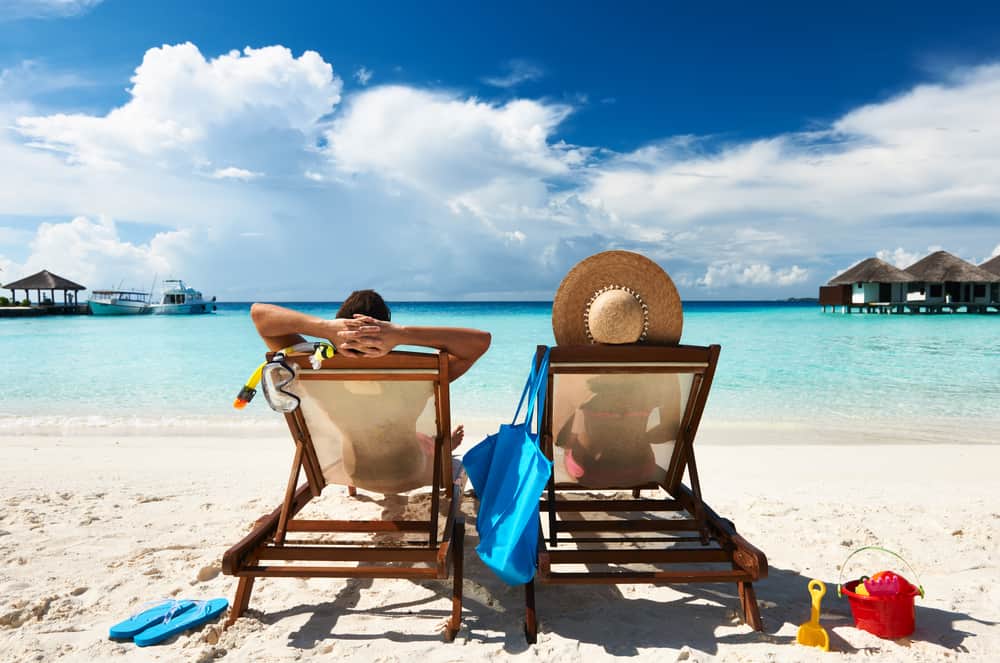Summer is a great time to travel. Not only are the kids out of school, you don’t have to worry about bad weather getting in the way of your carefully laid plans. Smart travelers know to follow their favorite airlines, hotel chains and vacation spots on Facebook and Twitter, where spur-of-the-moment deals may be announced. But last-minute booking can be risky. It pays to be the early bird and catch some discounts by booking sooner rather than later. If you haven’t planned that summer vacation yet, get to it. Here are five tips that can help you make the most of your travel budget: 
Booking your travel
Book your airfare mid-week. The best day to book your airline tickets is on Tuesday. The reason? Many airlines release their sales for the week on Monday nights. By Tuesday, the other airlines have had a chance to look at their competitors’ sales and price match. The most expensive time to book your flight is over the weekend.
Be flexible. Most of the major online travel sites offer a flexible date and/or flexible airport option. Those options can save you some money on airfare if you’re not that particular about the exact days you travel or you have a choice of airports. If you are tied to specific dates or airports, search for flights on Tuesdays, Wednesdays or Saturdays. Fridays and Sundays are the most expensive days to fly.
Compare prices. Before booking a flight or hotel room, check out several of the major travel sites (e.g., Travelocity, Expedia, Priceline, Hotwire, Orbitz) and compare prices. When you think you’ve found the airline or hotel with the best deal, go to their website and see if their price is lower. You’ll often find that hotel websites match or beat the aggregators. Don’t be afraid to call hotels directly (using the hotel phone number instead of the reservation number) and simply ask for a discount. If the hotel has empty rooms during the dates you’re planning to travel, they may be willing to negotiate a lower rate. If you don’t like the answer you get from the reservationist, ask for the hotel manager since he or she may be in a position to negotiate.
Name your own price. Many of the major travel sites will allow you to choose how much you’re willing to pay for your hotel room. For example, Priceline has a Name Your Own Price® option where you can choose a certain area of a city and the hotel star level you want, then tell them how much you want to pay for your room. I usually start my bidding at a little less than 50% of what they quote as the median price of a hotel in the area where I want to stay. If your offer is accepted, you can get some really nice rooms for reasonable rates using this option (if it’s rejected, you can try a higher bid after a 24-hour waiting period). But there are a couple of downsides. You don’t get to choose your hotel, and some of the hotels charge additional fees for parking or internet service, which isn’t disclosed up-front.
Travel off-season. This may not always be possible if you have kids in school, but you can get some good deals on hotel rooms (and sometimes airfare) if you travel slightly off season. For example, the main tourist season in Myrtle Beach is Memorial Day to Labor Day. Visit any other time in May or September, the weather’s still beautiful, and the hotel prices are cheaper. If you’re traveling to southern Florida, December and April (after Easter/Passover) are cheaper options than January through March, which is their main tourist season. An added bonus to traveling off-season is that the beaches (or other tourist attractions) are less crowded.
Finding entertainment
Do your homework. Before you go, order a visitors guide from the state tourism board or convention and visitors bureau of the place you will be visiting. Not only will they have lists of activities you may not have realized they offer, but often the guide will have money-saving coupons to local attractions, accommodations and even restaurants. Also check out the agency’s website, where you may find printable coupons. This will also help you make the most out of your time at your destination.
Do as the locals do. Become an Internet sleuth and find out what the locals know. Living on the Cheap’s network of local websites, which cover an array of cities, is a great place to start. There you can learn which attractions have free days. You can also find lesser known attractions you might otherwise miss, many of which are free. Locals know what is a must see and what you can skip. Plus, they know the best times to go to avoid crowds.
Get out early. Some attractions offer early birds free or reduced price admission. For example, admission to the St. Louis Zoo’s Children’s Zoo is $4 per person but free every day during the first hour the zoo is open. The same goes for Conservation Carousel ($3) and Stingrays at Caribbean Cove exhibit ($3). While planning your entertainment see if you can work those special days into your schedule to take advantage of these early bird specials.
Save money on food
Get a free breakfast. If prices are similar, choose a hotel that offers a good breakfast, and eat up. If the meal is substantial, call it brunch and skip lunch. Eating a big (free) breakfast at the hotel will give you all day to have fun without taking time out to eat lunch — saving you time and money. Eat filling foods like oatmeal, yogurt, and fruit.
When breakfast isn’t free. If you weren’t able to score a free hotel breakfast, don’t worry. Lots of breakfast foods can be kept in your hotel room before you leave for the day. Muffins or prepackaged breakfast bars are great choices. Even cereal works if you can head down to the hotel coffee shop and get a glass of milk. If you are lucky enough to have a fridge in your room then you can expand to yogurt or fruit. Also, breakfast at a restaurant is usually the cheapest meal of the day. Follow the same advice as above and make those eggs do double duty. Eat a nice big breakfast and skip lunch.
Save at restaurants. On days you leave the hotel early or go light on breakfast, consider making lunch your major meal. Lunch prices are often a lot cheaper than dinner prices at the same restaurant, and you get the same ambiance. Get the most out of your meal by avoiding alcoholic beverages. Get water instead. Not only is it healthier — it’s usually free. Ask your server if you can have the water bottle filled before you leave. Most places are happy to do so. When traveling with a family, those sodas can really add up quick.
Carry snacks and water. Hikers and runners use hydration packs that are also perfect for travel. Hydration packs are backpacks that you can fill with water, then they have a straw-like tube from which you can drink . Perfect for activities where you will be walking around all day. If you have water on your back, you can avoid spending $2 or $3 per person for a bottle of water. Also, hydration packs usually have small pockets you can use snacks. Perfect for making that big breakfast last until dinner!
If you liked this article, you may also be interested in:
The best travel apps and websites to save money and score deals
How to stretch your holiday travel budget
Use a travel agent to save money

